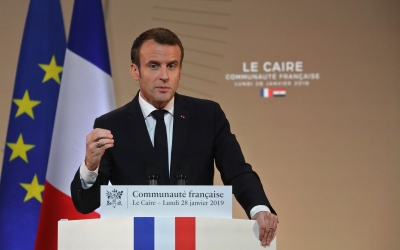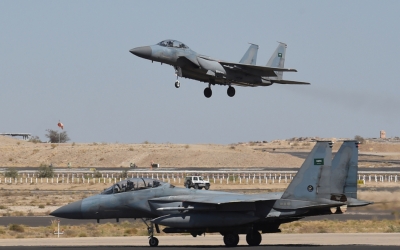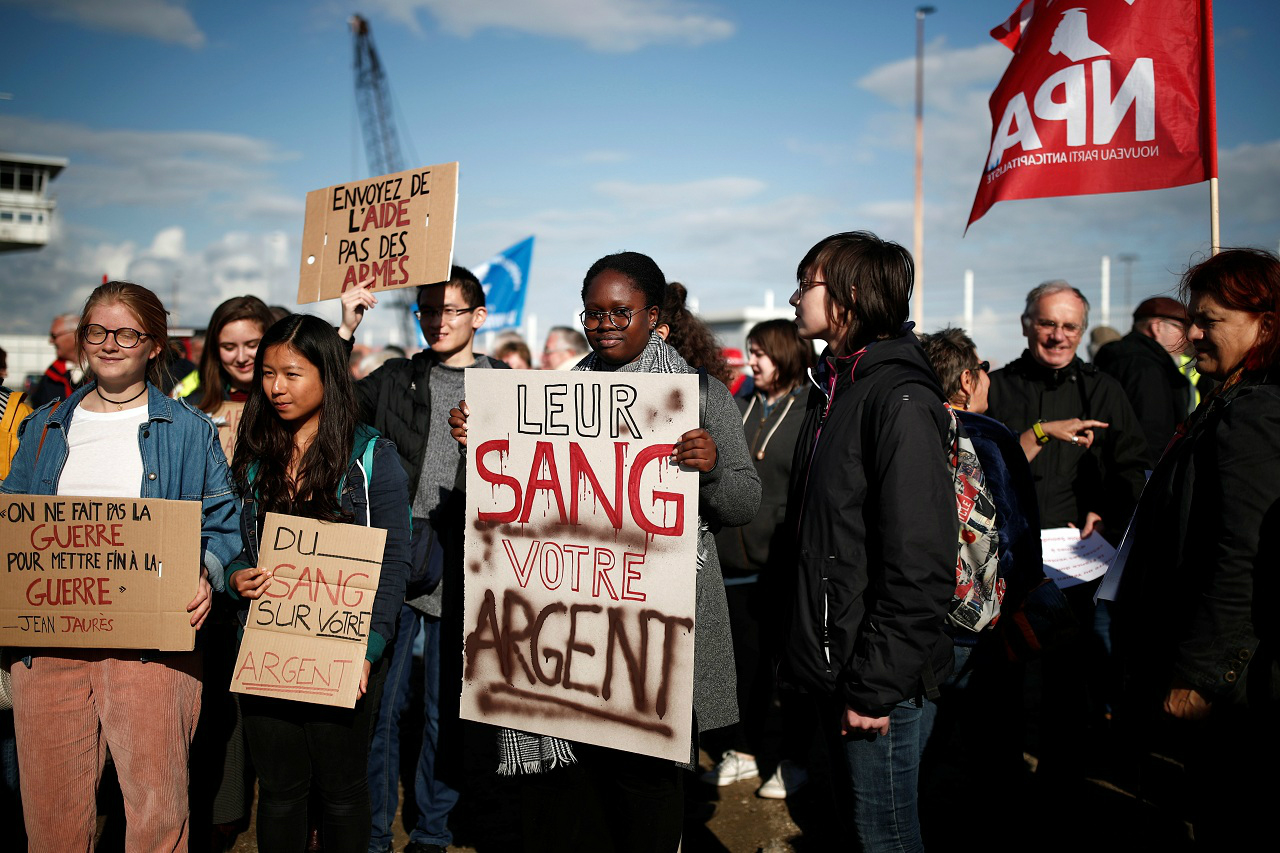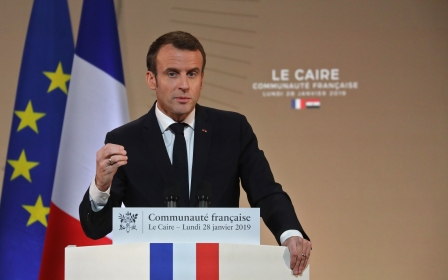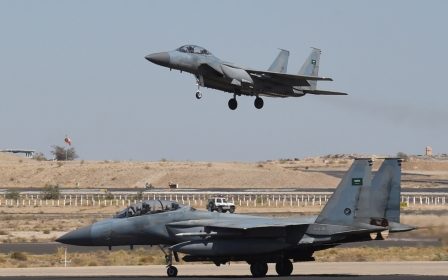Saudi vessel under legal challenge from activists leaves French port without arms

A Saudi vessel that had been due to load weapons in France left the port of Le Havre on Friday without its arms cargo and is now sailing towards Santander in Spain, according to ship tracking data and comments from a local French official to the Reuters news agency.
On Thursday, two French human rights groups had sought to block the loading of weapons onto the vessel as it sought to dock in northern France, arguing the cargo contravened an international arms treaty.
France's Armed Forces Minister Florence Parly had said on Wednesday that French arms relating to an order dating back several years would be loaded onto the Bahri Yanbu, which has been anchored off the northern port for the past few days.
The shipment has triggered controversy in France amid fears the arms could be used against civilians in Saudi Arabia's military campaign in Yemen.
Investigative website Disclose said this week that eight howitzer Caesar cannons, manufactured by Nexter, were part of the order.
The French government declined to give details on the contents of the arms order, Reuters said
"The stopover won't take place," a port source told the AFP news agency earlier on Friday, without giving further details.
Leaked French military intelligence
The development comes a few weeks after Disclose published leaked French military intelligence that showed weapons sold to the kingdom, including tanks and laser-guided missile systems, were being used against civilians in Yemen's war.
France is one of Saudi Arabia's main arms suppliers, but Paris has faced increasing pressure to review its sales because the four-year-old conflict has shattered Yemen's economy and created one of the world's worst humanitarian crises.
Speaking on behalf of rights group ACAT, lawyer Joseph Brehem told the Reuters news agency he had filed a legal suit to prevent the weapons being loaded aboard the Bahri-Yanbu, which is operating for Saudi Arabia's defence and interior ministries, on the basis of an article of the UN Arms Trade Treaty.
A second group, ASER, had also filed the same complaint at a different court.
"The article says that one country cannot authorise the transfer of weapons if at the time of the authorisation, the country knew that weapons could be used to commit war crimes," he said.
A judge had been due to announce a decision on the case on Friday.
'Bullets in our hearts'
France is a signatory of the UN Arms Trade Treaty that regulates the international trade of conventional weapons and bans the sale of weapons that fuel human rights violations or war crimes.
UN experts have said all sides in the Yemeni conflict may have committed war crimes.
Ship tracking data showed that the Bahri-Yanbu had been at anchor 25km from Le Havre, turning in circles since it was expected to arrive on Wednesday evening.
Before news of the ship's new port of call, an official for Jean-Paul Lecoq, member of parliament for Le Havre, had said the ship would have to go through a lock at the port, which could easily be stopped by dockers.
"I think the authorities are bothered by this. They could try to divert the cargo to another port, French or foreign," the official said.
About 100 people had protested at the port on Thursday evening with signs saying 'No to arms sales," "Their blood, your money," and "Far from the eyes, bullets in our hearts."
The incident is awkward for President Emmanuel Macron and his government, which has said that as far as it knows French-made arms sold to Saudi Arabia are used solely for defensive purposes on the border.
Macron said on Thursday that he had obtained guarantees from Saudi Arabia that weapons were not being used against civilians.
He also defended sales to Saudi Arabia, which he called a key ally in the fight against terrorism.
"Most of the weapons that have been sold are used inside [Saudi] territory or at the border, but they are used in the conflict," he told reporters in Sibiu, Romania, ahead of a summit of EU leaders.
Middle East Eye propose une couverture et une analyse indépendantes et incomparables du Moyen-Orient, de l’Afrique du Nord et d’autres régions du monde. Pour en savoir plus sur la reprise de ce contenu et les frais qui s’appliquent, veuillez remplir ce formulaire [en anglais]. Pour en savoir plus sur MEE, cliquez ici [en anglais].


